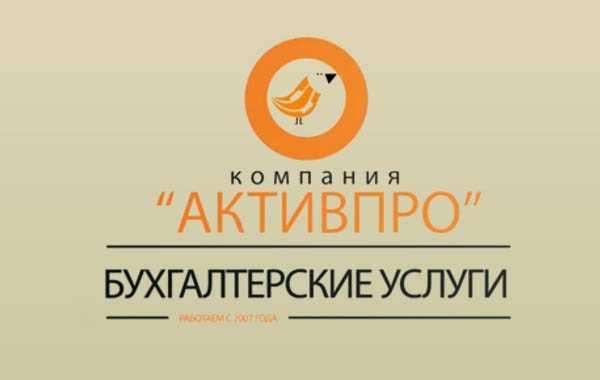Gambling site verification began as a defensive measure — a response to fraud, data theft, and unfair play. But it’s rapidly becoming something more ambitious: a digital trust framework. What was once a checklist of technical safeguards is now evolving into a dynamic ecosystem where players, regulators, and technology providers cooperate to identify risk before it reaches the user. The concept is shifting from “detect and warn” to “predict and prevent.” The difference may define the next decade of iGaming safety.
As I see it, the real future of gambling verification won’t hinge only on stronger encryption or faster audits. It will depend on the integration of data ethics, transparency, and collaborative intelligence. When these align, trust ceases to be a marketing claim and becomes a measurable standard.
The Next Layer: Intelligent Verification Systems
Imagine a verification service that not only checks licenses and payment security but also evaluates behavioral patterns, transaction frequency, and user feedback in real time. Artificial intelligence can already analyze deviations in traffic or payout ratios faster than any human inspector. Soon, these systems may assign evolving “trust scores” to gambling sites — dynamic indicators that change with each verified update or community report.
In such a model, a Verified site 먹튀검증 would no longer be a static label but a living certification updated continuously through AI and user collaboration. Players could see trust scores fluctuate based on actual behavior rather than annual audits. This would transform verification from a one-time stamp into a transparent, ongoing process that adjusts as operators evolve.
The challenge lies in ensuring that algorithms remain accountable. Who decides what constitutes “safe”? The balance between automation and human oversight will likely shape the credibility of next-generation verification systems.
The Role of Collective Intelligence and Open Databases
In recent years, the broader internet security community has shown how collective intelligence can outpace centralized oversight. Services such as phishtank demonstrate this principle daily by gathering, verifying, and sharing data on phishing attempts worldwide. The same cooperative model could be applied to gambling site verification — a decentralized database where regulators, security analysts, and everyday players contribute evidence of safe or unsafe operations.
Picture a hybrid verification ecosystem that blends automated data scanning with peer reporting. Instead of isolated watchdogs, we’d have networks of trust that grow stronger as more users participate. It’s the digital equivalent of herd immunity: every verified site adds resilience to the system as a whole. The question for the coming years is not whether such a model is possible but whether the industry has the transparency to sustain it.
Regulation and Ethics: The Double-Edged Future
As verification technologies mature, regulation will need to evolve just as quickly. Some jurisdictions already require operators to display third-party validation seals, but tomorrow’s standards may be far stricter. We might soon see real-time compliance dashboards, public audit histories, or blockchain-based verification ledgers where every certificate is immutable.
Yet with great transparency comes new ethical dilemmas. Should verification platforms share detailed site data with governments or limit it to consumer-facing metrics? How much personal information should users surrender for verification to function optimally? Balancing security with privacy will remain a defining tension. If regulation grows too heavy-handed, innovation could stall; too lax, and users lose confidence. The equilibrium will demand continuous negotiation among stakeholders.
The Globalization of Trust Metrics
Verification is no longer a local service. A player in Seoul may use a site licensed in Malta, operated from Manila, and audited in London. This global interconnectivity requires a universal language of trust — a verification metric recognized across jurisdictions. The industry may move toward standardized risk classifications, similar to credit ratings or environmental scores. A unified model would make it easier for players to compare platforms without decoding complex legal jargon.
International cooperation will be crucial here. Just as financial systems rely on global reporting standards, gambling verification could adopt shared criteria for fairness testing, data security, and dispute resolution. It’s an ambitious goal but an achievable one if technology and governance evolve in tandem.
Humanizing the Verification Experience
Despite automation’s promise, human experience will remain central to trust. Verification platforms must not only collect data but also communicate it clearly. Visual dashboards showing real-time legitimacy indicators, multilingual reporting tools, and user-friendly explanations will bridge the gap between technical depth and public understanding.
One scenario I find compelling is gamified verification — turning safety awareness into an interactive experience. Players could earn digital badges for reporting suspicious activity or completing safety quizzes, turning passive observation into proactive engagement. The future of trust may be built not only through code but through participation.
A Vision for the Next Decade
If these patterns continue, gambling site verification in the 2030s will feel less like a background function and more like an integrated trust economy. Platforms will compete not just on bonuses or graphics but on transparency scores, algorithmic accountability, and user protection ratings. The verification badge will become a dynamic symbol — a live data feed rather than a static logo.
In that vision, the safest operators won’t be those that hide behind firewalls but those that share their systems openly, inviting users to inspect, question, and contribute. As automation expands and global oversight strengthens, the goal isn’t to eliminate risk entirely but to make it visible, measurable, and manageable.
The future of gambling site verification, then, is a story of evolution — from secrecy to openness, from certification to collaboration. Whether through the adaptive intelligence of a Verified site, or through collective vigilance inspired by phishtank, one truth stands clear: trust will not be a product; it will be a shared process, continually rewritten by the very people it protects.








